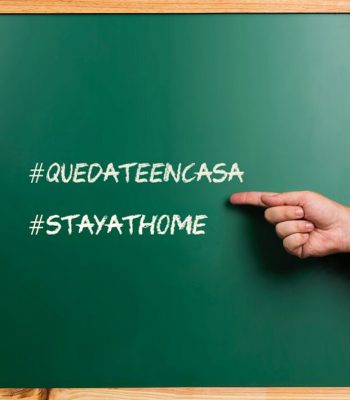Public health education during COVID-19 is crucial and communicating in-culture and in-language is the key to spreading messages of health and wellness to the Hispanic community. With Hispanic audiences seeking out information for themselves and their families, it is crucial for communications teams to know that there are several cultural elements to consider when speaking to this community about COVID-19.
Messages like “keep your distance from elderly family members” without understanding the role grandparents play, or “get checked” without understanding that many Latino communities live in fear, will be detrimental to our community and to public health. Getting the communication strategy right, however, can make a world of difference.
Several cultural elements are key to understanding the community, as it navigates COVID-19. Here are some of the key takeaways from my conversations with healthcare leaders across the country:
Understand the fear. One of the biggest barriers to stopping the spread of COVID-19 among Hispanic communities is fear; fear to seek medical attention or fear to tell employers they are not well for risk of losing their job.
“Someone has to tell our Hispanic community: don’t be afraid to get checked. You won’t be sent home. You won’t be sent back to your countries. If you are not well, please seek help,” said Dr. Fernando Holguin, executive director at the Latino Research and Policy Center at the University of Colorado School of Public Health.
Some Hispanics think, “this won’t happen to me in the U.S.” According to José Szapocznik, Ph.D., Chair Emeritus, Department of Public Health Sciences at the University of Miami, many Latin Americans (especially if they grew up outside the U.S.) have the sense that this could never happen here in the U.S., unlike in their countries, where diseases are more common.
They also feel that they most probably have contracted something similar in the past, considering the number of diseases that exist in developing countries vs. the U.S., and feel that they are most likely already immune.
As a result, Szapocznik says, it will be absolutely crucial to communicate that “this is an entirely new disease, and if you live in the U.S, you most certainly can contract it.”
Separating from the elderly is a challenge. The elderly are the nucleus of many Hispanic families and asking a Hispanic family to isolate their elderly is difficult, as many live with their parents or grandparents or visit them frequently.
The elderly are the center of their families, abuelos and abuelas, and are much loved. For Hispanics, distancing themselves from the elderly is seen as not giving them the love and attention that they need during this time.
It will be important to communicate that keeping away is equal to showing love, as hard as that may be. Szapocznik suggests communicating the following: “In order for your grandparents to be safe, you need to keep your distance. If you don’t do it for yourself, do it for them and for the health of your own family.”
Displays of affection are difficult to curtail. The custom of kissing someone on the cheek when you see them every day, and sometimes also hugging them, is customary across nearly all Latin American countries. It is the same for the second, and third generations in the U.S., who are raising their children among Hispanic traditions.
To now walk into a room and distance yourself, or just do an elbow hello is peculiar, and can seem impolite. Holguin said the message should be: “Hugs and kisses are a health risk. Stay distant.”
There is power in communicating not only in-language but also in-culture during this time and adjusting communications and public health initiatives accordingly. Whether you’re a brand communicating to team members, local health organizations supporting your community, or national organizations addressing all communities, how we frame the message can make an enormous impact on public health.
For more information or if you are seeking counsel please contact Natalie Boden, natalie@bodenagency.com.
As reported by PRWeek
